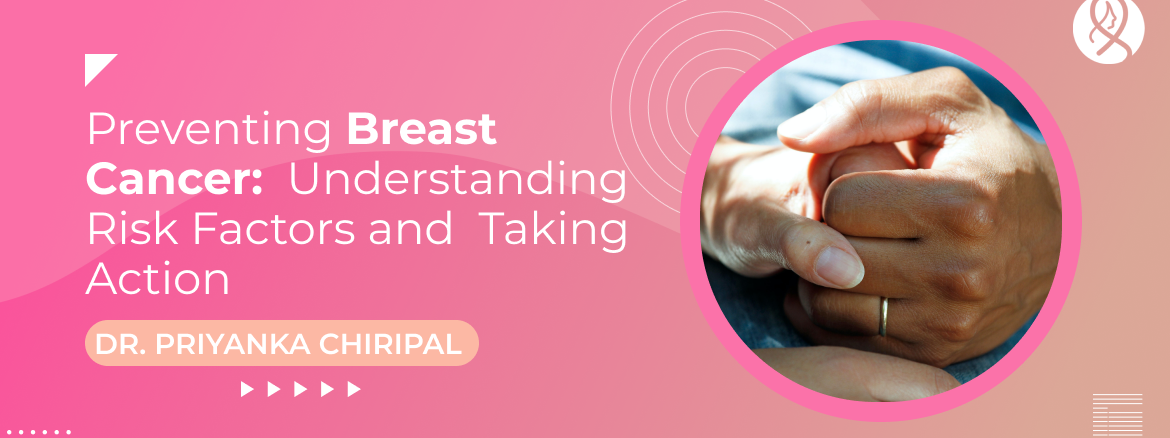Introduction
With an estimated 2.3 million new cases detected in 2020 alone, breast cancer is a major health problem for women everywhere. Breast cancer accounts for about 25% of all cancer cases and is the most often diagnosed one in women globally. There are several risk factors that can lead to the development of breast cancer, despite the fact that the actual origins of the disease are not yet entirely understood. Thankfully, there are also a number of actions people can take to lower their risk of developing breast cancer. We will talk about breast cancer risk factors and offer breast cancer prevention advice in this blog article.
Understanding the Risk Factors for Breast Cancer: What You Need to Know
- Gender and Age: Women are at a higher risk for breast cancer than men. Additionally, the risk of breast cancer increases with age, with most breast cancer diagnoses occurring in women over the age of 50.
- Family History: People who have a close family member (mother, sister, or daughter) with breast cancer are at a higher risk of developing the disease themselves.
- Genetics: Inherited genetic mutations, such as those in the BRCA1 and BRCA2 genes, can increase the risk of breast cancer.
- Personal Health History: People who have previously been diagnosed with breast cancer or other breast conditions, such as atypical hyperplasia or lobular carcinoma in situ, are at a higher risk of developing breast cancer.
- Lifestyle Factors: Certain lifestyle factors, such as smoking, alcohol consumption, and a sedentary lifestyle, can increase the risk of breast cancer.
Practical Tips for Preventing Breast Cancer
- Maintain a Healthy Weight: Being overweight or obese can increase the risk of breast cancer, especially in postmenopausal women. Maintaining a healthy weight through a balanced diet and regular exercise can help reduce the risk of breast cancer.
- Limit Alcohol Consumption: Drinking alcohol, especially in excess, can increase the risk of breast cancer.
- Quit Smoking: Smoking is a known risk factor for several types of cancer, including breast cancer. Quitting it can help reduce the risk of breast cancer as well as other health problems.
- Get Regular Exercise: Regular exercise has been shown to reduce the risk of breast cancer. Aim for moderate intensity exercise every week.
- Breastfeed Your Baby: Breastfeeding has been shown to reduce the risk of breast cancer, especially in premenopausal women. If possible, aim to breastfeed your baby for at least six months.
- Know Your Family History: If you have a family history of breast cancer, talk to your doctor about your risk and whether genetic testing may be appropriate.
- Get Regular Screenings: Early detection is key to successful breast cancer treatment. Women should begin getting regular mammograms starting at age 40, or earlier if recommended by a doctor.
Conclusion
The signs and symptoms of breast cancer, such as a lump or thickening in the breast, changes in the size or form of the breast, nipple discharge, or changes in the breast’s skin, should also be recognised in addition to these prevention strategies.
Visit a breast cancer doctor as soon as you can to discuss your options for screening and prevention if you experience any of these symptoms.



